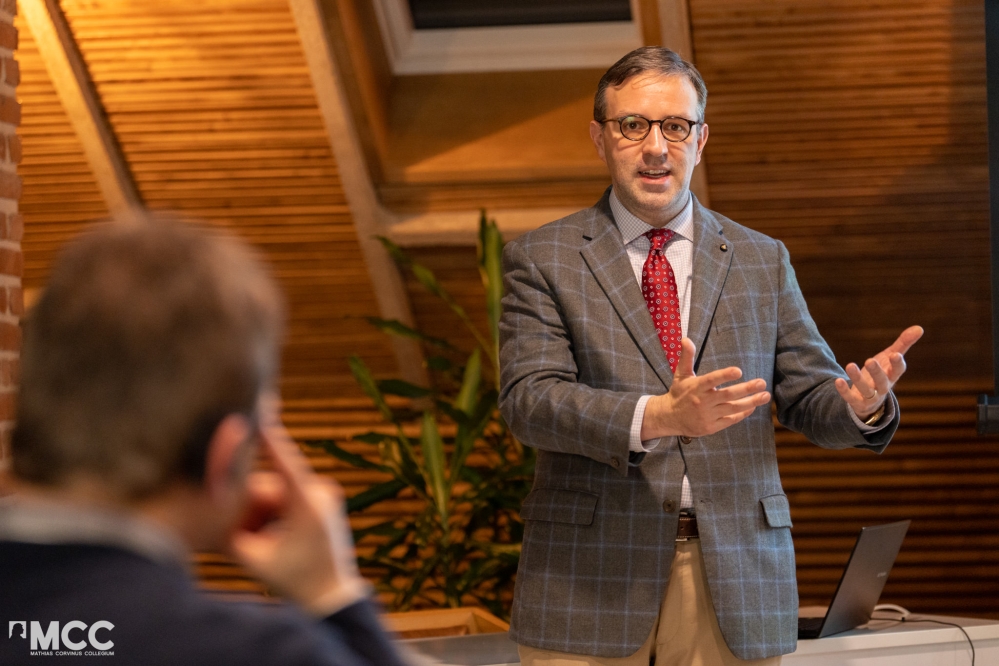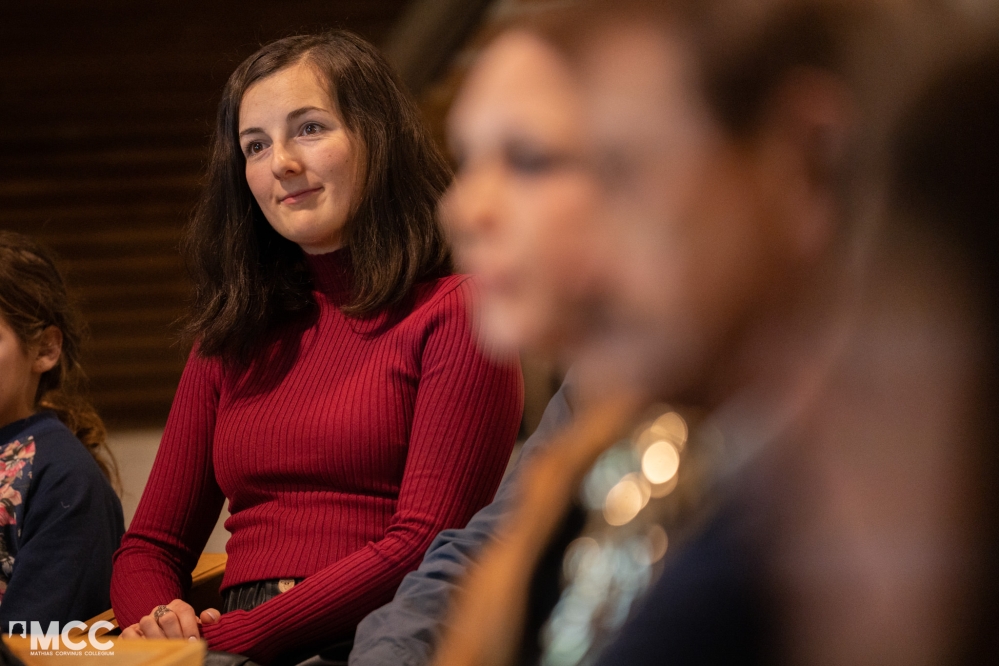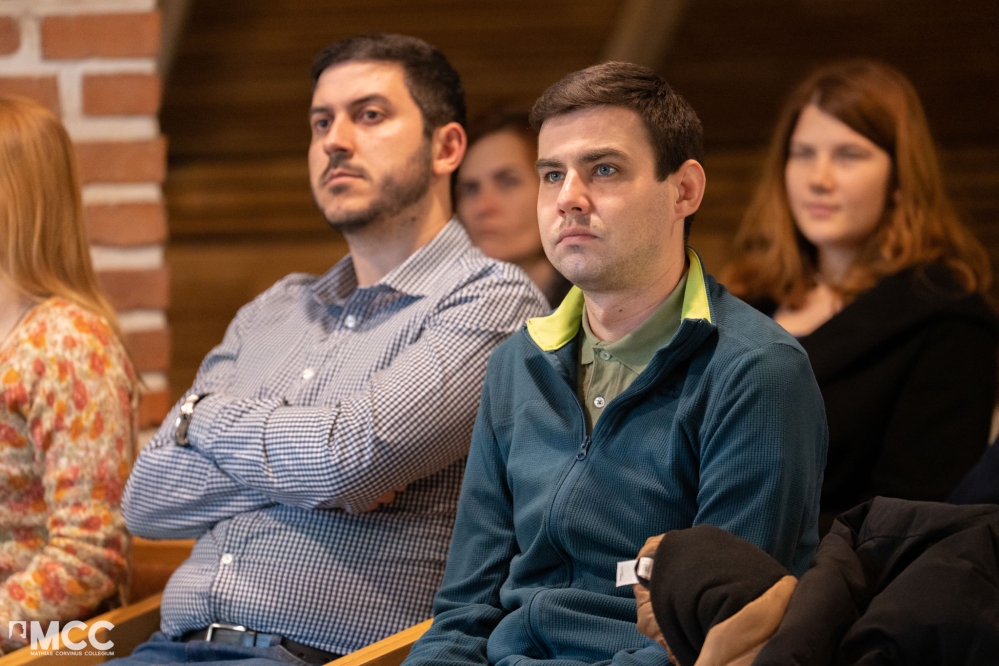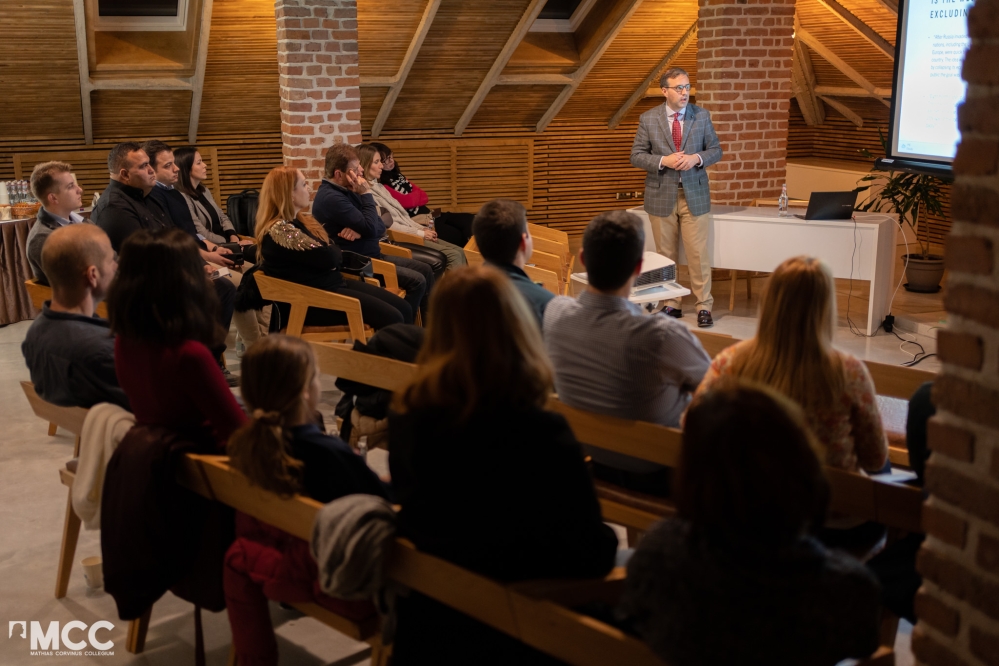Reading time: 3 minutes
Mathias Corvinus Collegium (MCC) organized an open lecture in Sepsiszentgyörgy/Sfântu Gheorghe with Dr. Gladden Pappin, a visiting senior fellow at MCC about the changing geopolitical situation of the United States, its influence on the world and the impact of the Russian-Ukrainian conflict.
Gladden Pappin analyzed the good and bad in American contributions to the world, at MCC’s event in early February. The guest speaker is a visiting senior fellow at MCC, on leave from the University of Dallas, where he is an associate professor of politics. He received his bachelor’s degree in history, as well as his master’s and PhD in government studies, from Harvard University. In 2017, he cofounded American Affairs, now the premier conservative political quarterly in the United States, of which he is deputy editor.
The lecture first looked back at the perception of the 1990s: after the Cold War, everyone believed that the US and its liberal world order would forever be the dominant power in the world. In that period the US decision-making was largely influenced by the previous collapse of totalitarian regimes and the survival of liberal democracy, a system that in many ways is now in a state of disintegration, explained Gladden Pappin. According to the speaker, since the war in Ukraine began, the US has grown stronger locally and has had a major influence on Europe, but has weakened globally as Russia and China have strengthened their ties, as has the BRICS (Brazil, Russia, India, China and South Africa) association.
The expectations the liberal world order had in the 90s are no longer realistic. This view assumed that everyone wants to live according to American views and values, and that people must be liberated from their nation, their traditions, their religion, their communities, even their family ties. Another condition is the idea of a global economy and liberal democracy being everywhere in the world (the examples of Iraq and Afghanistan, among others, are proof that these expectations failed). According to Gladden Pappin, these expectations and conditions have all fallen apart, the world has not responded well to the imposed system, but Washington is not budging from its views. He also pointed out that Brussels sees the EU as the most advanced form of human evolution, considers America as violent and irrational, and sees itself as a model for the world. But the bubbles have burst, Russia's war against Ukraine and the West's response to it have put an end to the globalization of the last three decades. The EU and the US no longer believe in a global economy – this is mostly notable in the isolation of Russia.
The consensus in the 1990s was that the world would become more integrated, and spreading the US brands would help in this. Now, however, by its behavior towards Russia, the West is undermining its own financial position, calling into question the basis of trust and security on which its position was originally built. People used to trust America, Western banks and the dollar, but with the introduction of sanctions something has changed: although Washington is reluctant to admit it, the dominance of the dollar is over, and the countries of the world are mor and more willing to do business with China and other regimes.
Gladden Pappin admitted, he sees his country differently after a year spent in Budapest. He would like for America to retain its position of power, if it can use it for good. In response to a question from the audience, he said that it is good to see America as an ally, and Europe tends to do that, but the US should accept that it cannot make everyone in its own image.



